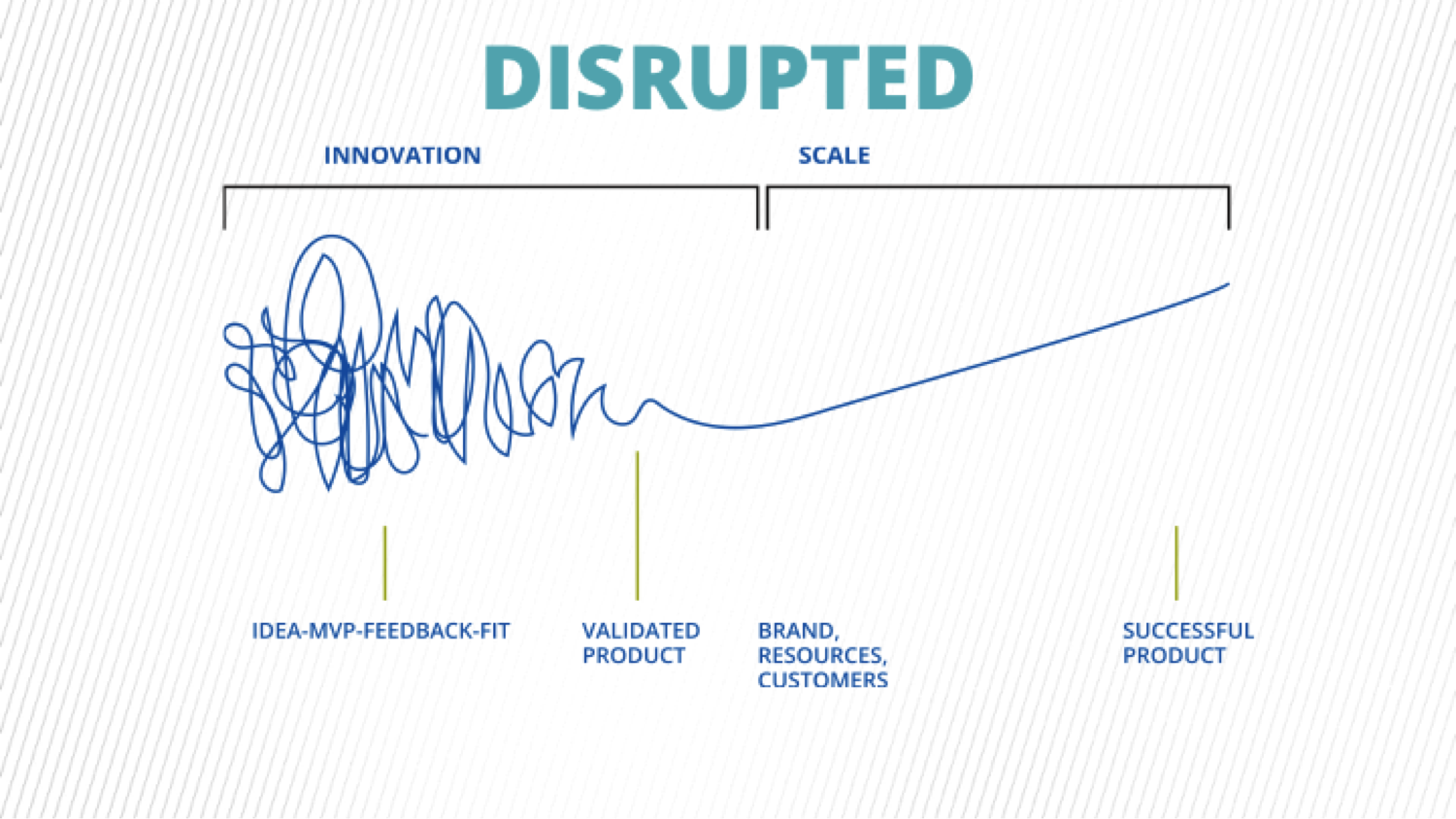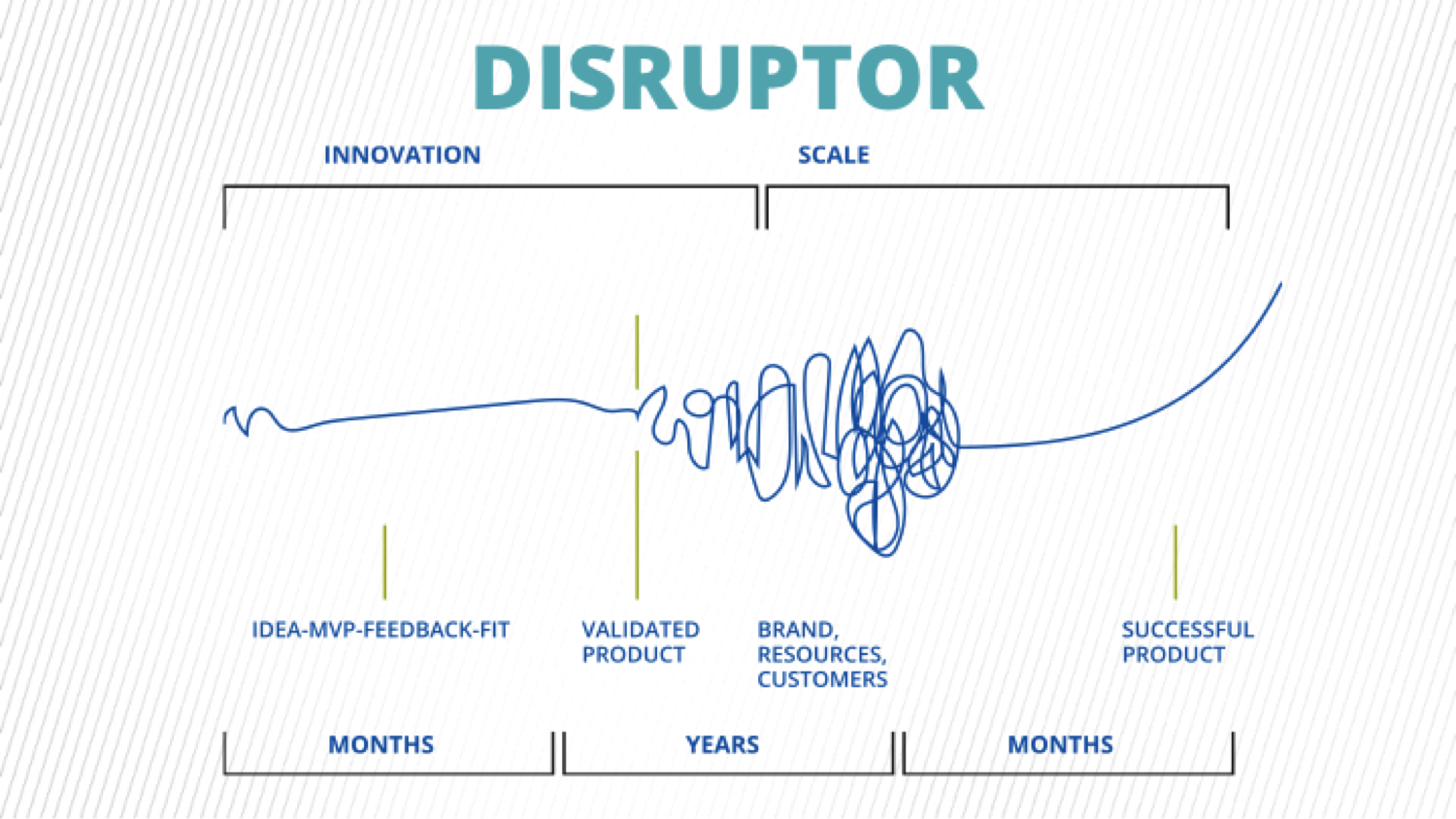
Accelerate Innovation from Start-up to Scale
By
Published: October 21, 2015
Connecting the disruptor and the disrupted to accelerate innovation
The message that has filled our ears and inboxes over the past year is one of massive disruption. We have heard how the startups and innovators of the world are disrupting our business, stealing both our revenue and our customers. Today the digital economy enables instantaneous global impact. Customers are one app install away from using your competitor or the new, shiny upstart. They know exactly what they want and they expect to get it right now.Change is never easy. For companies to benefit from the digital opportunities presented, organisational change needs to be taken seriously. Peter Weill, Chairman of MIT-CISR says, “To dramatically increase the quality of customer experience using digitization usually requires fairly radical organizational surgery."
This surgery is taking many forms in companies around the world. Everybody wants ‘innovation’. Some of the approaches to address this include: creating Innovation Labs, innovation teams or innovation centers; internal and external hackathons; vertical industry accelerators; corporate accelerators; partnering with accelerators; funding for incubators; and co-working spaces, to name just a few.
These create a competitive advantage by leveraging the learnings from the current darlings of innovation, technology startups.
Disruptor versus Disrupted

As a disruptor with fewer organisational constraints, it's relatively easy to innovate fast. You can rapidly move from an idea to a prototype or a minimum viable product. You can collect customer feedback quickly, pivoting or tweaking your offering until you find a problem-solution fit and then the product-market fit to deliver a validated product.The difficult part becomes figuring out how to scale your business. Establishing your brand, accessing customers and resources is possible, but extremely challenging.

As an established business you have exactly the opposite problem. Your business is built to scale products and get them to market fast. Accessing resources, customers and leveraging your brand is relatively easy, but innovation can be harder because of existing limitations.
You likely have plenty of ideas and the ability to execute on them, but face difficulty in choosing which one to focus on first. You may still be building the capabilities necessary to test those ideas in the market. It can be useful to look at the vast portfolio of assets and resources you, as the disrupted, have as an advantage over the disruptors. Sure, they move faster, innovate quicker and don’t have your organisational constraints. But you have the power of brand, customers, scale, money and resources at your disposal.
The skill is to apply these advantages in new ways, to allow you to move from a project-based approach to a culture of continuous learning through experimentation and customer feedback. Taking ideas from Lean startup, Lean Enterprise and Design Thinking methods can provide a solid foundation to new ways of working, but must be underpinned by brave leadership and a culture of continuous delivery on the technology side, in order to reach the customer at the touch of a button.
Every business is different, so there is no one single approach that fits all. If you're a financial institution, there are most certainly parts of the business that you want locked down and moving deliberately, but there are often customer facing areas that you want in a state of flow to remain agile and competitive.
How do you foster a culture of innovation in this environment?
The approaches to innovation mentioned above have the potential to work, but I believe the approach with the most success is connecting entrepreneurs and business in a classic vendor-supplier relationship. Blending your corporate culture with the entrepreneurs that are required to drive breakthrough innovation is hard.The type of person that creates a technology startup can be diametrically opposed to the type of person that works for your business. One loves chaos, uncertainty, speed, agility and the other loves stability, scale, consistency and predictability. It’s hard to make an internal incubator or accelerator work under these conditions.
The creator of the start-up has little desire to work exclusively for you on an ongoing basis, which is why they are entrepreneurs in the first place. Accelerators promising to to create an internal accelerator for your business, attract the best and brightest entrepreneurs and filter out the top few to drive your innovation program are hopeful at best.
I believe the answer is to let the early-stage innovation ecosystem filter out the most interesting and successful products and services. Customers decide what startups are successful and what they need. Challenge your business to find ways to partner with these startups as a customer. All a startup wants in the early days is customer-funding. The goal of a startup is to find a viable business model and become a business. The overhead of chasing funding and investment from angels, venture capital firms or government exists, to some extent, because few companies have the appetite to actively engage with these riskier startups. Not engaging results in excluding themselves from the innovation benefits of being early to market.
Startups are often difficult to engage with and big business is notoriously slow and cumbersome to get started.
Think about how you can make this easier.
Instead of funding that next hackathon or shiny new lab, invest in streamlining your funding models, contract processing time and integration points into your business. How can you frictionlessly connect startups and the innovation they bring directly to your customer? Sponsoring a hackathon is a good thing to do as it funds the broader ecosystem, but don’t delude yourself that this makes you innovative if you’re not integrating these small companies into your products or solutions. Many of these relationships and products will fail, and you need to be comfortable with that.
Consider enabling startups and innovators with your business as a platform rather than competing with them head on. Bing does 300 experiments each week and expects 80% to fail, and startup founders work 24x7 trying to compete or improve upon one particular aspect of their business model. Can you compete with that?
One example is Domino's Australia with their Pizza Mogul product which effectively lets micro-entrepreneurs plug into their platform (delivering custom pizzas). Another one is Westfield Bespoke Labs in San Francisco which invites startups to create products and experiment in a real shopping centre environment (shopping centre as their platform).
Key takeaways
- Accelerators are a valuable part of the ecosystem, but are not the only approach.
- Startups want you as a customer or partner, not an employer.
- Bring startups inside and work with them, not against them.
- Work with partners who understand the ecosystem, culture and behaviour within the innovation ecosystem.
- Connect the innovators directly with your customers and broker the platform where possible.
Disclaimer: The statements and opinions expressed in this article are those of the author(s) and do not necessarily reflect the positions of Thoughtworks.















